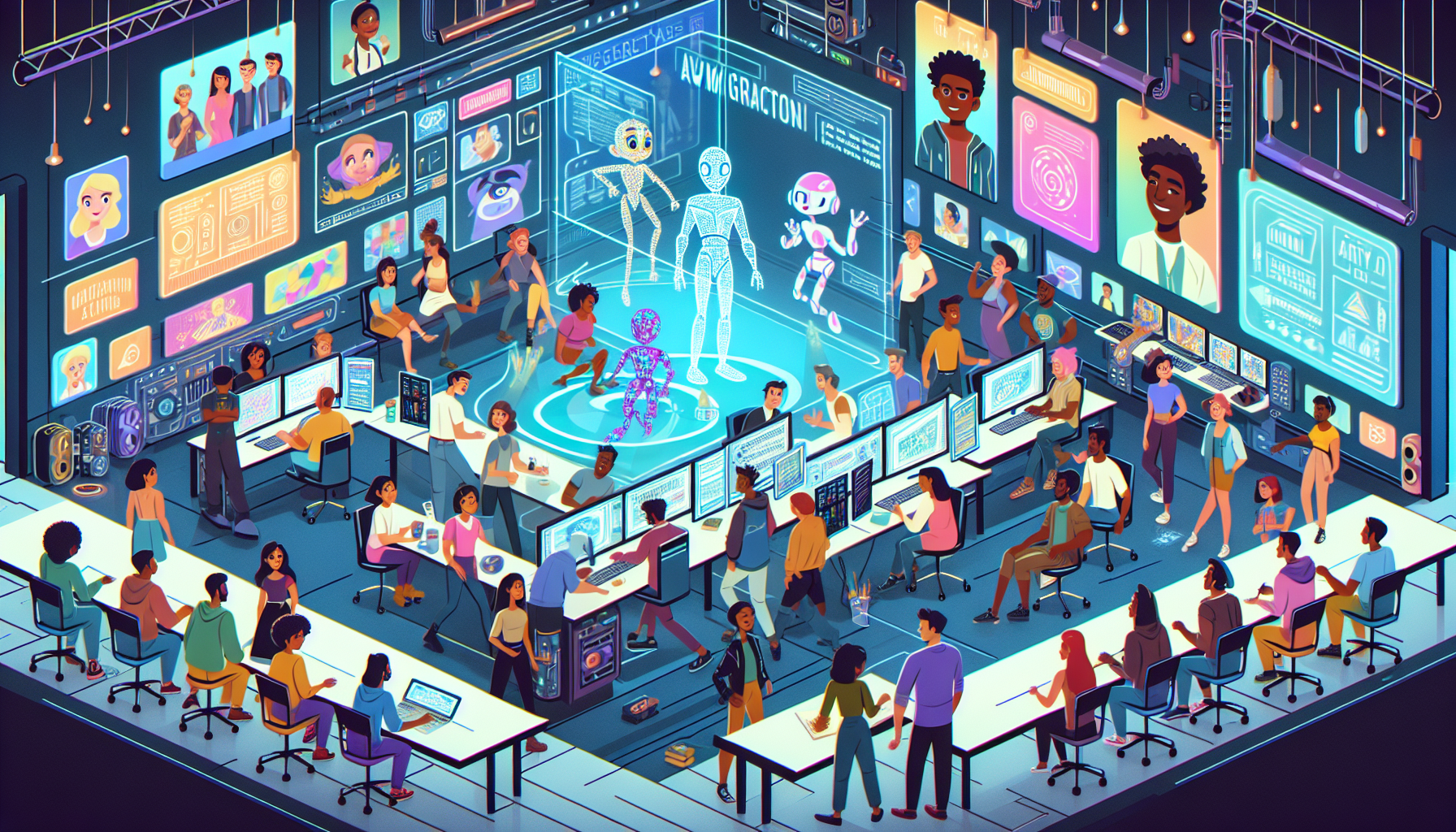
Roll Out the Red Carpet for AI Screenwriters in Animation!
Once upon a time, screenwriting was a purely human endeavor (cue the montage of writers furiously typing on typewriters, crumpling paper, and the iconic trash can filled to the brim). Fast forward to today, the landscape of animation screenwriting isn’t just about quirky humans spinning out dialogues over copious amounts of coffee. Enter stage left: artificial intelligence (AI) screenwriters, shaking up the realm of animated films and series with a silicon-infused twist!
Why Animation is Perfect for AI’s Creative Flourish
First off, let’s talk about why animation and AI are a match made in storyboard heaven. Unlike live-action, animation is not constrained by pesky little things like physics or reality. It’s all about the boundless, where pigs fly flawlessly and singing frogs are the norm. This is A++ material for AI’s learning algorithms, which similarly know no bounds.
AI in screenwriting snuggles nicely into this world of limitless possibilities, using algorithms to analyze vast datasets involving genre trends, character archetypes, and narrative structures. It’s like having a narrative sommelier at your service, blending the old and the new to concoct something deliciously animated.
Predicting Plot Twists with Algorithmic Precision
In the digital scuttlebutt, there’s chatter about how AI can crunch numbers and data to predict the next big plot twist that will keep audiences gripping their seats (or their cats, no judgement). AI algorithms review past successful animated features, learn what kept audiences engaged, and then generate suggestions that could be the next big thing. Essentially, think of AI as that friend who guesses movie endings but, you know, not annoyingly prescient.
From Sketch to Screen: AI As the Unseen Screenwriter
So, how does an AI screenwriter actually get down to business? It starts with input—lots of input. This could be anything from existing scripts to entire databases of film history. This input is then digested faster than you can say instant noodles using methods like Natural Language Processing (NLP). NLP helps the AI understand human language, break it down, and even create (somewhat) coherent original content.
Next comes the machine learning algorithms, which are like the personal trainers for the AI. They keep pushing and refining the AI with feedback loops. So, if the first draft is more ‘robo-rumble’ than ‘Ratatouille’, tweaks are made, creativity is churned, and voila! A script emerges that might just be the screenplay for the next big animated blockbuster—or at least a decent YouTube series.
The Human Touch: Still in Demand?
Here’s the twist: no matter how sharp our AI screenwriter gets, there’s still a need for that human touch. After all, can a machine truly understand the emotional gravitas of a perfectly timed existential crisis or the subtle humor in a pratfall? This is where humans come in, providing nuance and emotional depth (or just making sure the AI doesn’t accidently write an opera when you wanted a comedy).
Collaborations between AI and creative professionals in animation often result in a fascinating meld of technical efficiency and creative flair. The AI offers a plethora of choices and the human refines it into relatable storytelling.
Looking to the Future: The Rise of AI-Generated Animated Epics
Imagine a future where entire animated films are written, directed, and animated by AI. Before you even think it—no, this doesn’t mean the robot uprising is here. Think of it more like the ultimate tool in an animator’s kit, expanding what’s possible in creation.
Not only could this streamline the notoriously lengthy animation process, but it could also democratize film-making. Budding animators with stunning ideas but without Hollywood budgets could harness AI to bring their visions to life.
And while an AI crafting an entirely coherent and soul-stirring animated feature might still be a little ways off, we’re certainly on the cusp of seeing more AI-assistance in animation. The role of AI in animation is evolving faster than you can press ‘fast forward’ on your remote.
So, will AI replace the traditional screenwriter in animation? Probably not. But will it transform it? Absolutely! The writing room for animated films and series might just get a little more… algorithmic. And frankly, that sounds like a plot twist worth watching.






